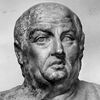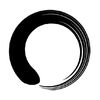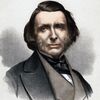Pay goodness for evil. We should be like trees that give fruits to those who throw stones at them. You should accept yourself, not as a master, but as a servant, and then all your bad feelings, your anxiety, alarm, uncertainty, and dissatisfaction will be changed into calmness and peace. You will be filled inside with a clear vision of your purpose, and with a great joy.











